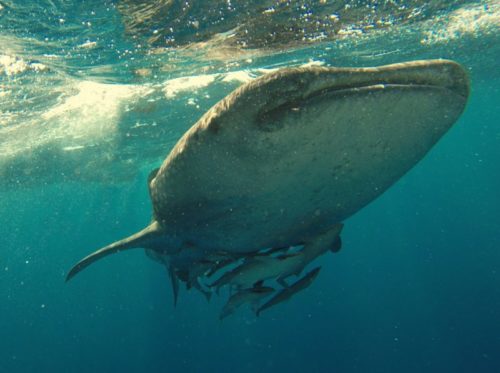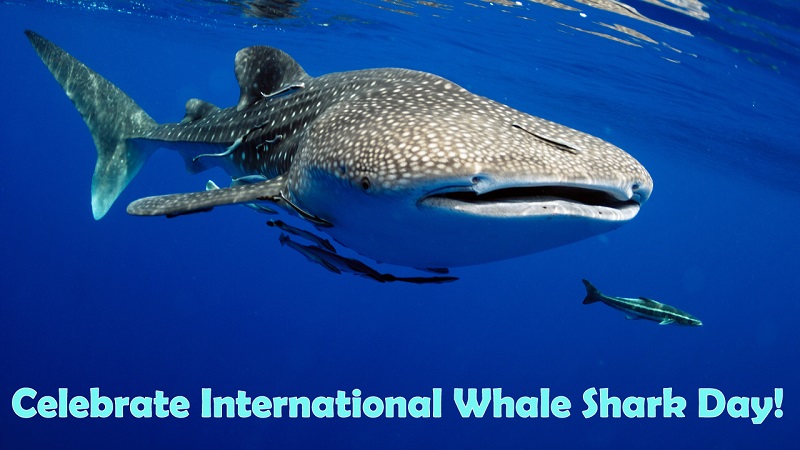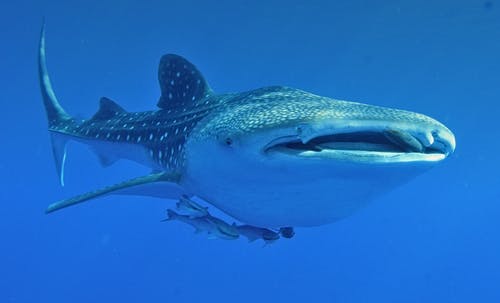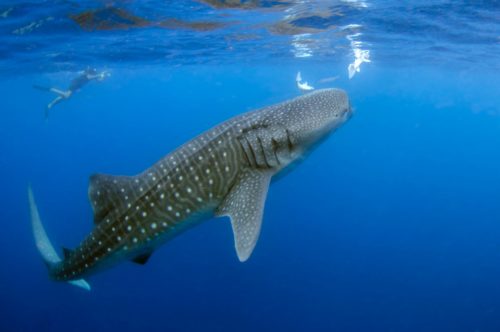Let’s Celebrate International Whale Shark Day!
International Whale Shark Day is celebrated each year on August 30th. Did you know that whale sharks are the earth’s largest fish — up to sixty feet long, are docile filter-feeders, can dive up to 6,000 feet deep, and bear patterns of spots that, like human fingerprints, are unique to each individual?
Whale Sharks are also listed as endangered species so it makes sense that a day would be dedicated to learning about these cool creatures. You can learn all about these behemoths of the ocean in the replay of my live, online workshop below.
GETTING THE MOST OUT OF THIS WORKSHOP
- First, download the Whale Shark Sketching Cheatsheet.
- Next, gather some sketching pencils and paper.
- Lastly, clear your schedule for this 75-minute workshop and click the video below to begin. Enjoy!
COOL FACTS ABOUT WHALE SHARKS
- Whale sharks are named for their resemblance to baleen whales since they are nearly as big and are also filter feeders.
- Whale sharks are the largest type of fish in the world, reaching lengths of sixty feet, though 20-40 feet is most common, with females being larger than males.
- Whale sharks have patterns of white spots and bars that are unique to individuals, like human fingerprints, and this trait allows researchers to more easily identify and study them.
- Whale sharks are cosmopolitan and pelagic, living in all the world’s oceans from approximately 30 degrees north to 35 degrees south of the equator in warm seas.
- Whale sharks migrate seasonally long distances to find enough food to thrive, following plankton blooms and baitfish schools.
- The complete and annotated genome of the whale shark was published in 2017.
- Whale sharks are classified by the International Union for Conservation of Nature Red List as Endangered.
- Whale sharks face many threats including entanglement in fishing lines, ingestion of plastics, collisions with boats, oil spills, competition with fisherman for food, and being hunted for their fins, meat, and liver oil.
You Can Help Conserve Whale Sharks
- Only eat sustainably caught seafood.
- Reduce plastic consumption.
- Fight climate change.
- Lobby against whale shark hunting.
- Support whale shark eco-tourism.
- Donate to marine conservation organizations.
- Share your knowledge with friends and family.
LEARN MORE ABOUT SHARKS
- The Shark Trust
- Shark Stewards
- Shark Angels
- American Shark Conservancy
- Shark Allies
- Shark Guardian
- Wild Aid
- Oceana
- Florida Museum
- Shark Advocates International
- Save the Sharks
- Shark Research Institute




